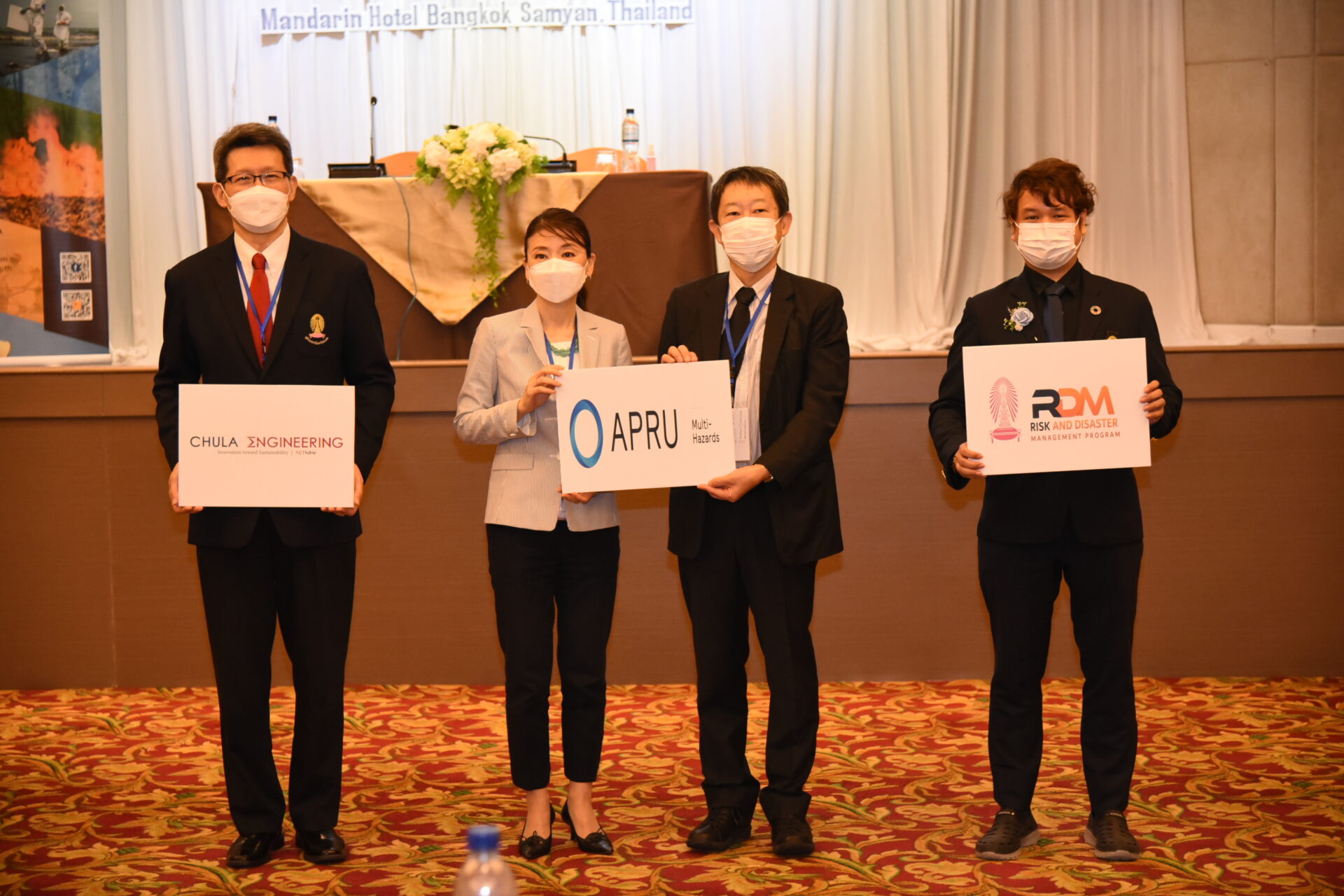The 17th Annual APRU Multi-Hazards Symposium was hosted by Chulalongkorn University in Bangkok in late-November, highlighting the importance of innovative approaches for numerous key topics ranging from infrastructure and community resilience to socio-economic and governance challenges. Held under the theme “Innovation toward sustainable growth and disaster risk reduction”, the real-life gathering brought over 120 featured scholars, practitioners, and participants from the APRU network and the United Nations ESCAP across four continents.
Prof. Dr. Bundit Eua-arporn, President of Chulalongkorn University, pointed out that Chulalongkorn University is strongly committed to facilitate academic learning, public service, and professional excellence with innovations for multi-hazard management.
“Education institutes have a lot of valuable academic resources and innovative research, and we need to work harder with collective efforts and well-planned strategies to mitigate potential risks and use new innovations with systematic management methods to prevent any hazards from happening,” Prof. Dr. Bundit said in his welcome speech.
“By doing so, not only people’s life will be safer, but also damages on lives and properties will be reduced,” he added.
The multidisciplinary nature of the 17th Annual APRU Multi-Hazards Symposium was illustrated by eleven prominent keynote speakers, such as Prof. Fumihiko Imamura, Director of the International Research Institute of Disaster Science at Tohoku University; Dr. Bhichit Rattakul, , Chairperson of the Thai Network for Disaster Resilience; Dr. Sanjay Srivastava, UNESCAP Chief for Disaster Risk Reduction; and Dr. Aaron Opdyke, Director of Research Training, School of Civil Engineering, Sydney University.
Case studies ranged from Seismic Fragility of Selected Public High School Buildings in Cagayan de Oro City, Philippines, to Lessons Learned from COVID-19 Management in Sri Lankan Hospitals. Participants agreed that new approaches and tools based on innovation, science, and technology are indispensable to tackle future risks.
“Nowadays, our world has been impacted by multiple hazards, including one of the most severe pandemics, COVID-19, and each time, the affected countries were facing losses based on lives,” said Prof. Supot Teachavorasinskun, Dean of Faculty of Engineering, Chulalongkorn University.
“As the world is developing, it is our goal to reduce the disaster losses by creating sustainable innovations from our multidisciplinary knowledge,” he added.
The 17th Annual APRU Multi-Hazards Symposium featured several Best Presentation and Poster Awards. Students from Monash University and Universitas Indonesia won the prizes by sharing the lessons learned from COVID-19 management in Sri Lankan hospitals and integrating tsunami evacuation route planning in web applications for Disaster Risk Reduction.
For more information about the Multi-Hazards Symposium, visit here.

